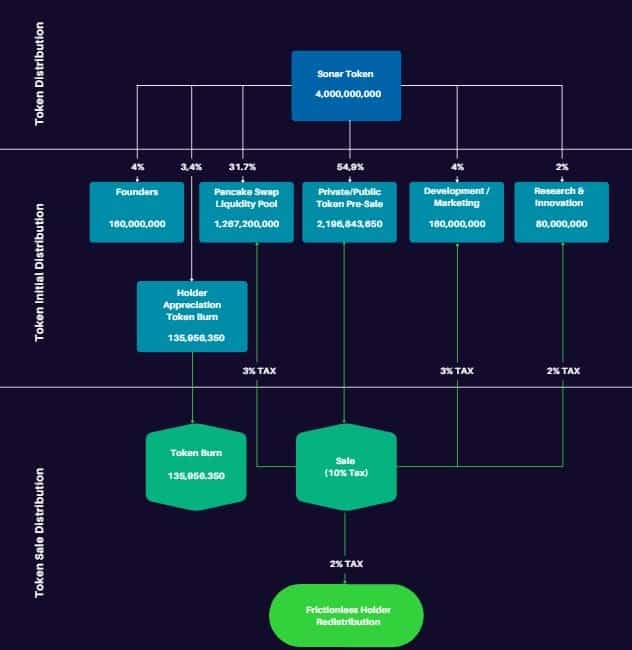[Featured Content]
2021 brought cryptocurrencies to the mainstream a lot more compared to 2017. The main reason, of course, was the parabolic advance in Bitcoin’s price.
The primary cryptocurrency charted an all-time high around $65K in April in a bull run that was (or still is – according to some) nothing short of impressive. Naturally, this brought a lot of newcomers to the market.
Interest in cryptocurrency trading skyrocketed as the daily trading volume across all of the exchanges also surged. And while this is undeniably good for the industry as a whole, it’s also important to consider that many newcomers don’t have the understanding or the tools necessary to tackle this challenging market.
This is where Sonar Platform steps into the picture.
What is Sonar Platform?
Founded in early 2021 by an international group of cryptocurrency professionals, Sonar boasts a dynamic, all-in-one crypto analytical ecosystem designed to simplify and accelerate the user’s online investment ventures.
The comprehensive dashboard will allow users to quickly cut through the noise when trading and focus on the metrics that matter. They will also be able to customize and streamline their data feeds in a way that enables them to keep what they need and get rid of what they don’t.
Some Analytics and Trading Tools
Some of the tools that Sonar brings to the table include, but are not limited to:
- Price analysis
Users will have access to live price data feeds from the major decentralized and centralized exchanges for various cryptocurrencies. They will also have access to technical analysis (TA) charting tools, as well as order book information.
- Social analysis
Users will be able to take advantage of an intelligent AI integration from various social media sources and identify trending projects and ones promoted by influencers. They would be able to convert qualitative market sentiment information into a quantitative score.
- Trading notifications
Sonar will provide users with customizable conditional notification events to better control their positions during price fluctuations. An upcoming feature would also be the trading signals.
- Contract vetting and audits
The platform will also deliver a visible score based on audit certification checks for different assets. In addition, Sonar will also perform contract security quality scores through risk detection, assessing variables such as liquidity lock-up, and so forth.
These are just a few of the features that the project will offer. Others include trade execution, early investment opportunity notification system, live-tracking, and so forth.
PING Token in Depth
PING token is the cryptocurrency that underpins the entire ecosystem, and users will need to buy it to unlock some of the features. It’s defined as a utility token for the reasons listed below.
While some of the features such as basic asset tracking and basic analysis will be available to non-holders, to unlock more advanced tools, users will need to hold PING. There are three tiers (0, 1, and 2), and, quite expectedly – the more PING tokens one holds, the higher their tier and the greater access to more analytical tools they will have.
However, it’s also worth diving into PING’s tokenomics a bit deeper. Here’s how the entire structure looks like:
One of the important things to consider here is the 10% transaction tax. It’s designed to provide a constant increase of holdings to PING investors, liquidity, and funding for the venture. This is because 2% go back to holders, 3% go back to the liquidity pool, 3% go for funds development, and 2% go for innovation – 10% in total.
What’s to Come?
The roadmap of Sonar is also quite intriguing, looking at the things the team has in store for the current 3rd quarter of 2021.
Right off the bat, there’s an enhanced contract security audit by CertiK in the pipeline. It’s worth noting, though, that the project has already been audited by TechRate and passed the security checks successfully.
From a technical perspective, the Sonar Application Wallet with limited functionalities should be deployed while also activating the basic asset tracking for all tier level members. Metadata tracking layers, as well as UX and UI improvements for the platform, are also in the making.
Somewhere in the near future, the PING token should also be added to some major tracking applications such as Blockfolio, while the team is also going to work on getting it listed on top-tier exchanges later this year.
One of the more important developments scheduled for Q1 of 2022 is the release of its beta and the Web 3 wallet.
The project also intends to release a wrapped version of its PING token to act as a bridge between the ERC20 and BEP20 token standards.





















